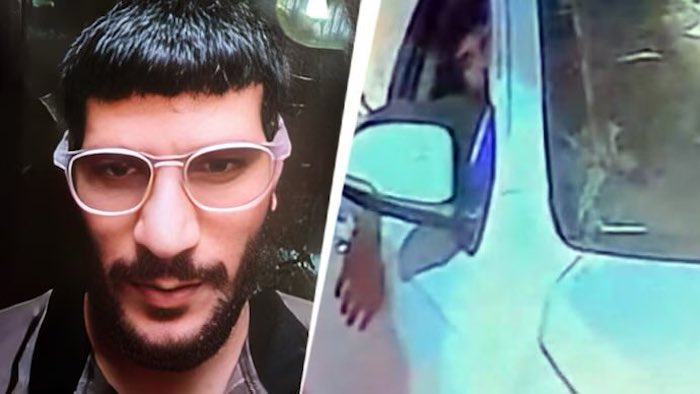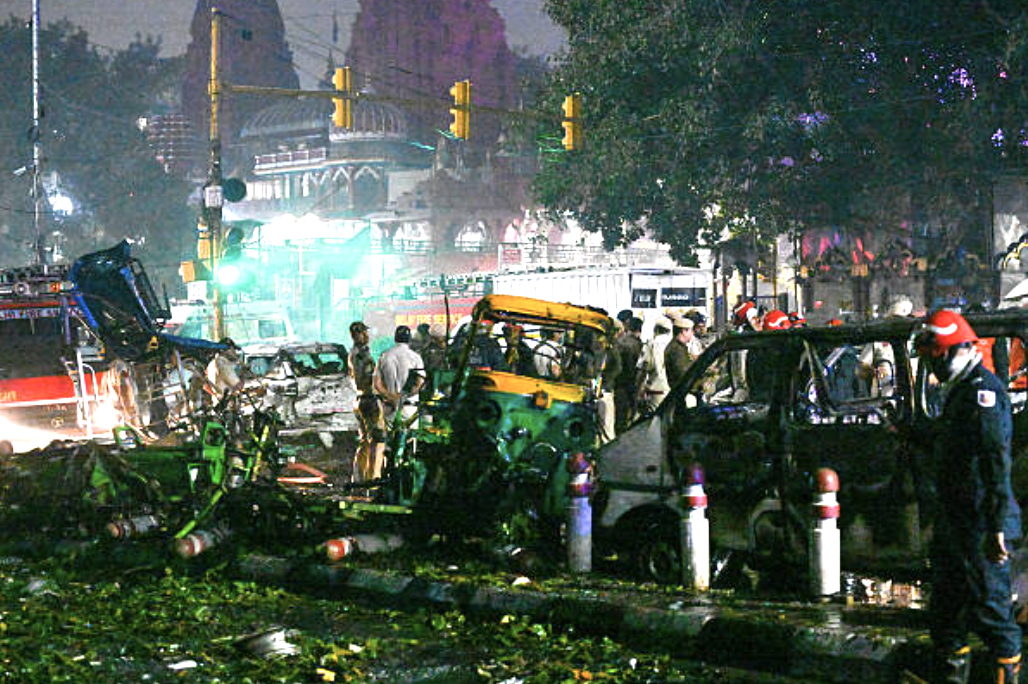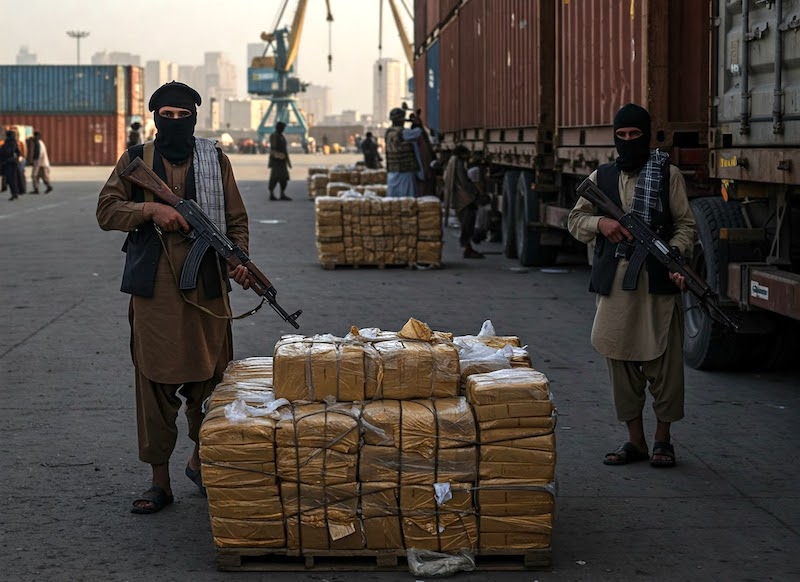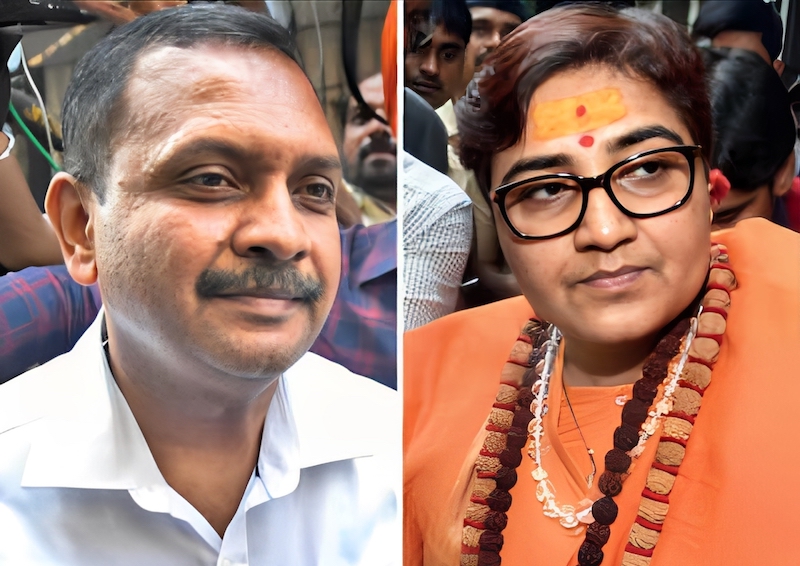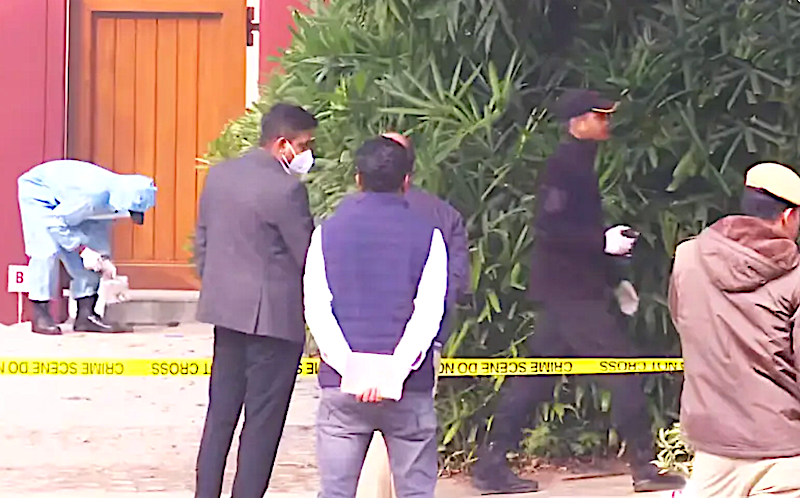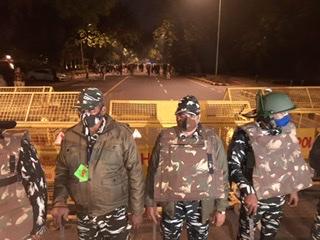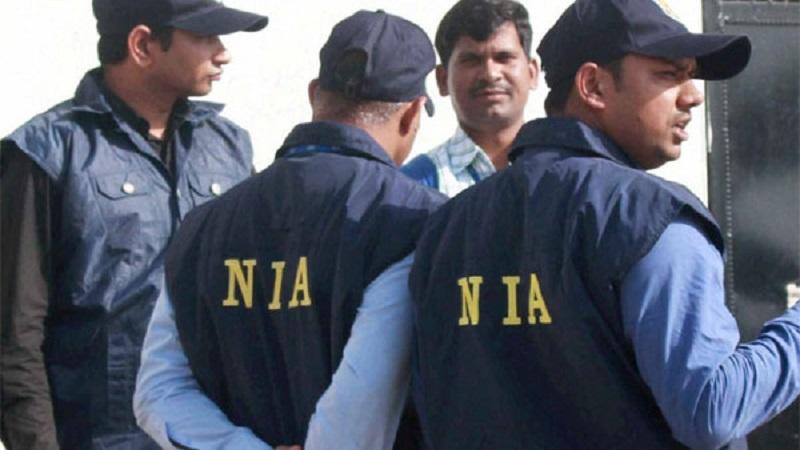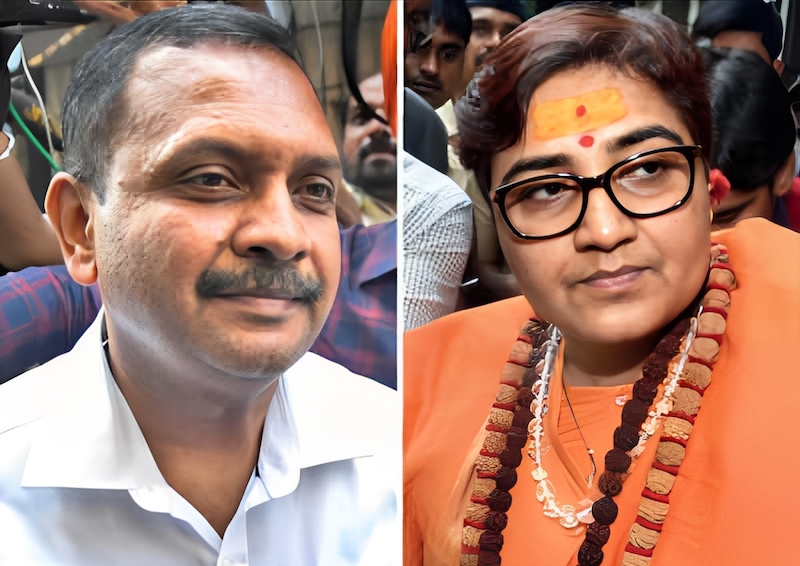 Pragya Thakur (R) and Lt Col Prasad Shrikant Purohit.
Pragya Thakur (R) and Lt Col Prasad Shrikant Purohit.
Mumbai/New Delhi: A special National Investigation Agency court in Mumbai acquitted all seven accused in the 2008 Malegaon bomb blast case, on Thursday. This puts an end to a 17-year legal saga that had gripped the nation and introduced the politically charged concept of “saffron terror” into Indian discourse.
The NIA court special judge, AK Lahoti, delivered the verdict acquitting former BJP MP Pragya Singh Thakur, Lieutenant Colonel Prasad Purohit, Sudhakar Chaturvedi, Sudhakar Dhar Dwivedi, Sameer Kulkarni, Ajay Rahirkar, and Major Ramesh Upadhyay (retired). The case involved allegations that Hindu right-wing activists orchestrated the September 29, 2008, blast that killed six people and injured over 100 in the communally sensitive town of Malegaon in Maharashtra’s Nashik district.
‘Strong suspicion but no proof’
In his comprehensive 1,000-page judgment, Lahoti emphasized that while the prosecution had established that a blast occurred, it fundamentally failed to prove beyond reasonable doubt that the accused were responsible. “Terrorism has no religion because no religion can advocate violence,” the judge observed, adding that “the court cannot convict anyone merely on perception and moral evidence; there has to be cogent evidence.”
The court found “strong suspicion” against the accused but ruled this insufficient for conviction under criminal law standards. “Mere suspicion cannot take the place of real proof,” Lahoti noted, highlighting “material inconsistencies and contradictions” that plagued the prosecution’s case.
Evidentiary failures doom case
The judgment exposed critical failures in the investigation’s evidence collection and analysis. Regarding the motorcycle allegedly used in the blast, the court found no reliable evidence proving ownership by Thakur. The vehicle’s chassis number had been deliberately wiped out, and the engine number was deemed unreliable. The court noted that Thakur had become a sanyasi (ascetic) two years before the blast and had distanced herself from material possessions.
For Lt Col Purohit, the court found no evidence that he had stored explosives at his residence or assembled any explosive device. The prosecution failed to prove allegations that Purohit procured RDX from Kashmir. “There is no evidence of source, transportation or storage of RDX at Purohit’s house” and “no evidence that Purohit made the bomb,” the court observed.
The trial witnessed 323 prosecution witnesses, with 37 turning hostile during proceedings. Witnesses who were supposed to testify about conspiracy meetings in Faridabad, Bhopal, and other locations either turned hostile or provided unreliable testimony. The court found that “material witnesses have not supported the prosecution case”, and their testimony was not “reliable and acceptable”.
Probe plagued by procedural lapses
The court identified severe procedural defects that fatally undermined the case. Both sanction orders under the Unlawful Activities (Prevention) Act (UAPA) were ruled “defective” and issued without proper “application of judicial mind”. The interception of calls was unauthorized, with permissions obtained belatedly, rendering intercepted communications unusable as evidence.
Crime scene investigation drew particularly harsh criticism. No proper sketch of the blast site was prepared, the location was not immediately secured, and evidence collection was compromised. “Evidence was not collected by experts after the incident” and there was “contamination of the blast spot, hence the result cannot be conclusive,” the judge observed.
Despite having fingerprint experts available, no prints, DNA samples, or other critical forensic data were collected. The court noted that even material seized, including mobile phones and laptops, were not sealed according to proper procedures.
Voice evidence, electronic data questioned
Electronic evidence presented by the prosecution faced significant scrutiny. Voice samples and their forensic analysis were deemed faulty. Audio and video recordings allegedly found on accused Sudhakar Dhar Dwivedi’s laptop were found unreliable due to lack of independent identification and contradictions in recovery procedures.
The court noted that narco-analysis was conducted by the Maharashtra Police Anti-Terrorism Squad (ATS) but was not properly documented or filed on record, adding to the overall impression of a flawed investigation process.
Compensation ordered
Acknowledging the tragedy’s impact, Judge Lahoti ordered compensation of ₹2 lakh for families of each deceased victim and ₹50,000 for each injured person, to be paid by the Maharashtra government. The court also ordered a departmental inquiry into ATS officer Shekhar Bagade, whose presence at an accused’s house was deemed suspicious.
Victims’ kin vow appeal
Some of the victims’ kin and lawyers representing them told reporters that they have not given up hope of getting justice, and they would file an appeal against the verdict in the high court. It may be mentioned that during its closing arguments in the special court, The NIA had sought the death penalty for all the accused, as India Sentinels had reported in April.
The verdict was expected to be delivered in May, but it was postponed after the judge ordered all accused to be physically present in court.
Malegaon Blast: The 2008 Attack That Changed Terror Discourse
The September 29, 2008, blast occurred near Bhikku Chowk during the Islamic holy month of Ramzan, just before evening prayers at a nearby mosque. The low-intensity explosive device was strapped to an LML Freedom motorcycle. The six victims included 10-year-old Farheen alias Shagufta Shaikh Liyakat and 60-year-old Harun Shaha Mohammad Shaha.
The investigation was initially led by Maharashtra ATS under IPS officer Hemant Karkare, who was later killed during the November 26, 2008, Mumbai attacks (26/11 terror attacks). The breakthrough came from examining the damaged motorcycle, whose restored chassis number led investigators to Thakur. Her arrest on October 23, 2008, marked the first time a Hindu religious figure was accused of terrorism under a terror law in India.
From ATS to NIA: Changing narratives
The case was transferred to the NIA in April 2011, which conducted a fresh review and found serious flaws in the ATS probe. In 2016, the NIA filed a supplementary chargesheet dropping Maharashtra Control of Organised Crime Act (MCOCA) charges against all accused, citing lack of evidence.
The investigation had focused on the organisation Abhinav Bharat, allegedly a revived version of a revolutionary group originally founded by Vinayak Damodar Savarkar in 1904. The modern version was reportedly re-established in 2006, with prosecutors claiming it functioned as an organized crime syndicate aimed at establishing a “Hindu Rashtra” (Hindu nation).
Political and social impact
The case fundamentally altered India’s counterterrorism discourse by challenging the dominant narrative that associated terrorism primarily with Islamic fundamentalism. The term “saffron terror” became a significant political flashpoint, influencing electoral politics and policy discussions about extremism across religious lines.
The lengthy legal process, spanning 17 years with multiple investigating agencies and five different judges, highlighted challenges in the country’s criminal justice system for handling complex terrorism cases. The eventual acquittal due to evidentiary failures raises broader questions about investigative standards, interagency coordination, and the balance between political considerations and legal requirements in terrorism prosecutions.
The verdict effectively dismantled the prosecution’s case built around Hindu extremist involvement in terrorism, though the court’s emphasis that “terrorism has no religion” while requiring concrete evidence for conviction reflects an attempt to balance communal sensitivities with legal standards.
Rohini Salian, former special public prosecutor in the case, had earlier alleged that NIA officers asked her to “go soft” on the accused. This allegation had added controversy to the case, particularly after the Congress-led UPA government was replaced by the BJP-led NDA government after the latter’s victory in the 2014 general election.
The judgment marks the end of one of India’s most politically sensitive terrorism cases, leaving questions about the investigation’s handling and the broader implications for counterterrorism efforts in a diverse democracy.

